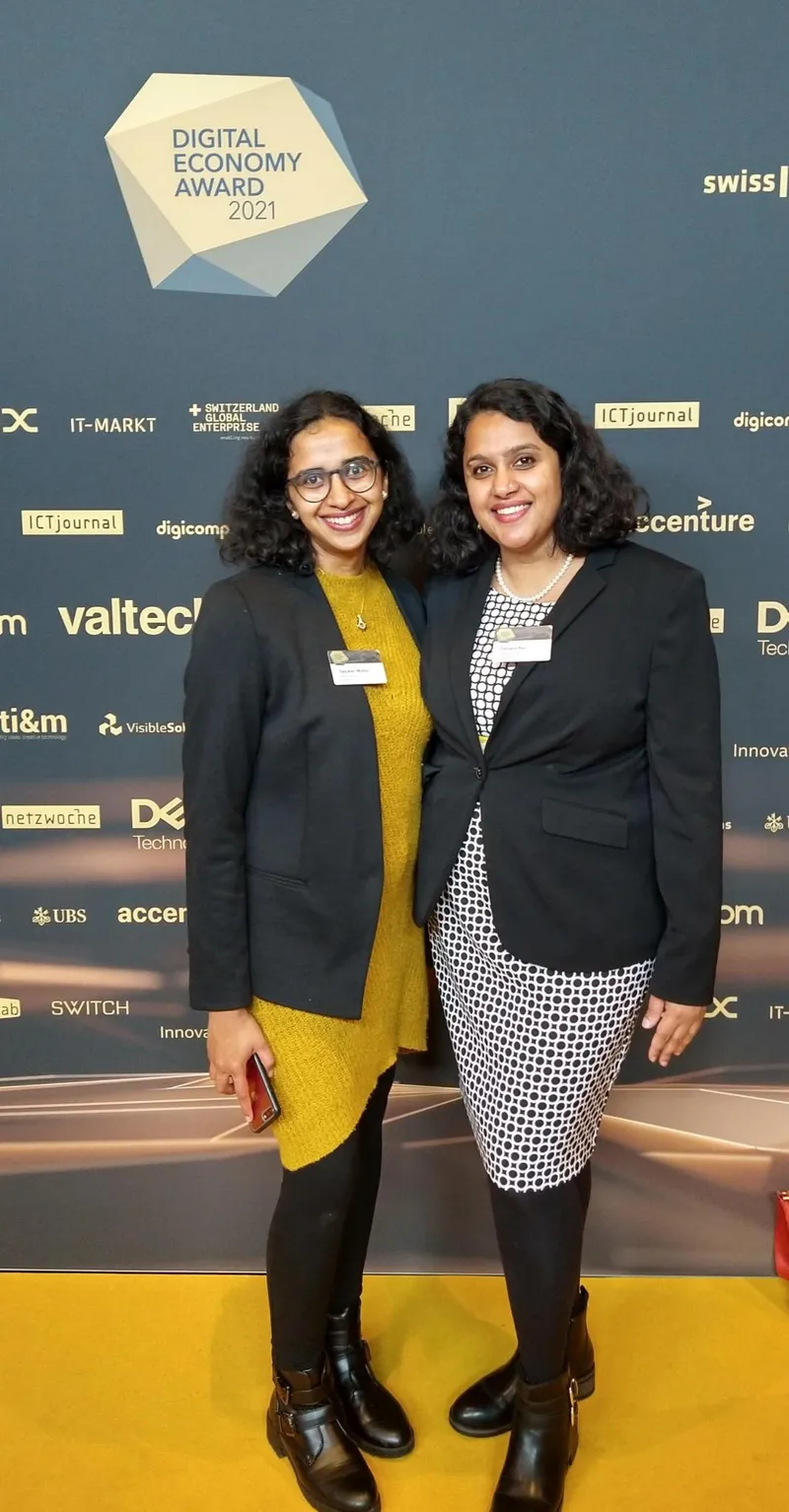[100 Emerging Women Leaders] These scientists are helping women navigate mid-life health and menopause with Miyara Health
Miyara Health, founded by Gayatri Muthukrishnan and Sanjana Rao, offers digital health solutions designed for midlife health and menopause.
In 2019, a chance connection on LinkedIn sparked a transformative journey for scientists Gayatri Muthukrishnan and Sanjana Rao.
Rao worked at the Indian Institute of Science, Bengaluru, before pursuing her PhD in Biotechnology at the University of Freiburg, Germany. She did postdoctoral research at the ETH Zürich and University of Zurich and worked at a medical device startup.

Gayatri Muthukrishnan and Sanjana Rao - co-founders of Miyara Health
Muthukrishnan pursued a BTech in Chemical Engineering from IIT-Madras; PhD from Penn State University in Bioengineering, and post-doctoral work as a Wellcome Trust India Alliance early career fellow in NCBS, Bengaluru, in the cusp of Cell Biology and engineering. She then moved to Switzerland to work in health communication at Karger Publishers.
When the two connected on LinkedIn, Muthukrishnan was contributing science articles in health communication. Rao had been searching for like-minded professionals and the articles resonated with her.
“We connected instantly over our shared interests in science and health, and the fact that there was a disconnect and misinformation regarding health for a layperson,” Rao recalls.
Lack of information on women’s health
As part of an entrepreneur’s course, Muthukrishnan and Rao surveyed women in their late 30s and 40s to understand their needs better.
“Many women had little knowledge of what was happening to their bodies as they aged. They felt unsupported and dismissed, especially when it came to topics beyond fertility, like perimenopause and menopause. The lack of conversation and information around these issues, particularly in India, was shocking,” says Muthukrishnan.
While pregnancy and fertility had a wealth of resources, menopause remained largely unaddressed. As women past the childbearing years Gayatri and Sanjana felt deeply connected to this problem. Women didn’t know what to expect as they entered this next stage of life. The conversation around menopause was mostly absent—except in the US and UK, where awareness was beginning to grow.
Globally, 1.1 billion women will experience menopause by 2025, representing a $600 billion market, says Rao.
“Women may endure over 34 disruptive symptoms due to hormonal fluctuations during perimenopause and postmenopause. Many women turn to healthcare providers, but doctors frequently lack specialised training in menopause care, leading to inconsistent support. Online forums and social media provide information that can be overwhelming and inaccurate,” she adds.
The survey results showed a lack of understanding among women about changes in their health and available solutions.
A digital companion for women
To promote women’s mid-life health, menopause, and healthy ageing, Rao and Muthukrishnan registered digital platform Miyara Health in Chennai in 2022.
It is a remote-first company with experts from India and other countries. Rao and Muthukrishnan are based in Zurich.
The heart of Miyara’s product offering is a digital companion for menopause, which includes an AI-chatbot to provide awareness, a personalised health assessment based on the woman’s symptoms and short, easily executable self-paced programmes for symptom management, available 24/7 that fits within a woman’s busy schedule.
“Women can easily access our programs to address common menopause-related issues such as insomnia, hot flashes, stress relief, and incontinence. Our approach not only helps women manage menopause symptoms effectively but also promotes long-term health by reducing the risk of chronic diseases,” explains Rao.
Moreover, the inbuilt-community component of Miyara Health allows women to connect with others experiencing similar issues, fostering a supportive network and shared learning environment.
The AI-chatbot and health assessment are available free of cost for all women.
Miyara is currently focusing on B2B and B2B2C models. With B2B, it provides corporates with a package of awareness sessions, expert-driven symptom management workshops and the digital companion. For B2B2C, it partners with doctors and healthcare professionals to provide digital programs to assist the women along with any prescriptions given to them.
Corporates are charged for customised packages, and individually, women can buy programmes separately or opt for a subscription for all.
Women aged 35-60 years in India and globally are its target audience.
“In just a year, we have reached more than 8,000 people through our awareness sessions with eight global corporates. Through doing programs on the digital companion women find an 83% improvement in ability to manage their symptoms, and have given the programmes and the AI-chatbot a 4.75/5 rating,” shares Muthukrishnan.
While Miyara Health competes with companies like Elda Health, Miror, Menoveda in India and Peppy, Stell, Midi Health, and others abroad, Rao says they plan to differentiate by focussing on the validation of both the chatbot and the programmes developed to be able to scale the digital companion faster to women wherever they are through different GTMs.
Miyara Health is bootstrapped and is currently raising a pre-seed round of funds.
The founders admit that two women dealing with women’s health makes it even more difficult to raise funds in a male-dominant investment world.
“Being first-time founders, we are either seen as “too young” ( although we are both in our 40s) or the market is seen as “too small/niche”. Overcoming the stigma and lack of awareness around menopause is a significant barrier to funding as well,” Muthukrishnan says.
Their advice to women who want to start up is simple.
“It is a difficult ride but with huge learnings. It cannot be learned but has to be experienced. If you have a brilliant idea and are ready to do anything to see your idea blossom, then take the plunge.”
Edited by Megha Reddy


![[100 Emerging Women Leaders] These scientists are helping women navigate mid-life health and menopause with Miyara Health](https://images.yourstory.com/cs/4/8e7cc4102d6c11e9aa979329348d4c3e/100EWLV2MiyaraCoFoundersFeatureImage-1729680998651.jpg?mode=crop&crop=faces&ar=16%3A9&format=auto&w=1920&q=75)




